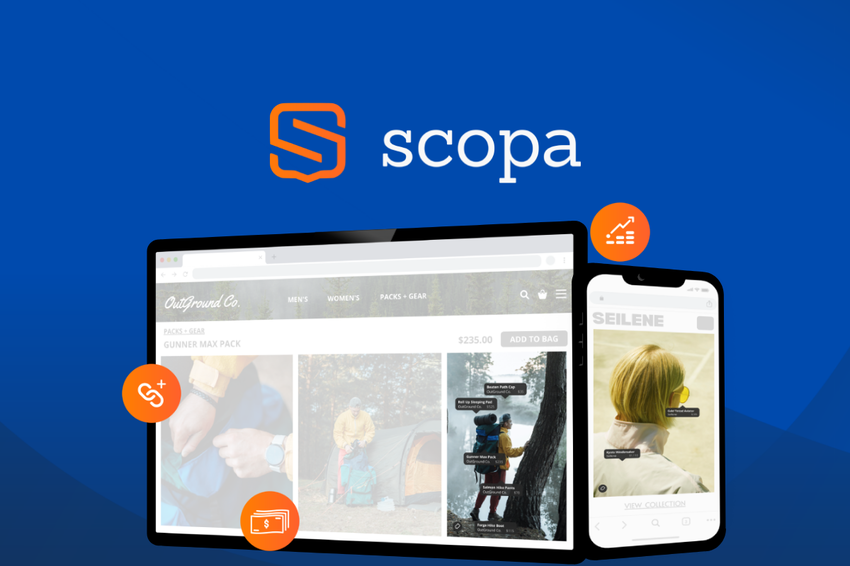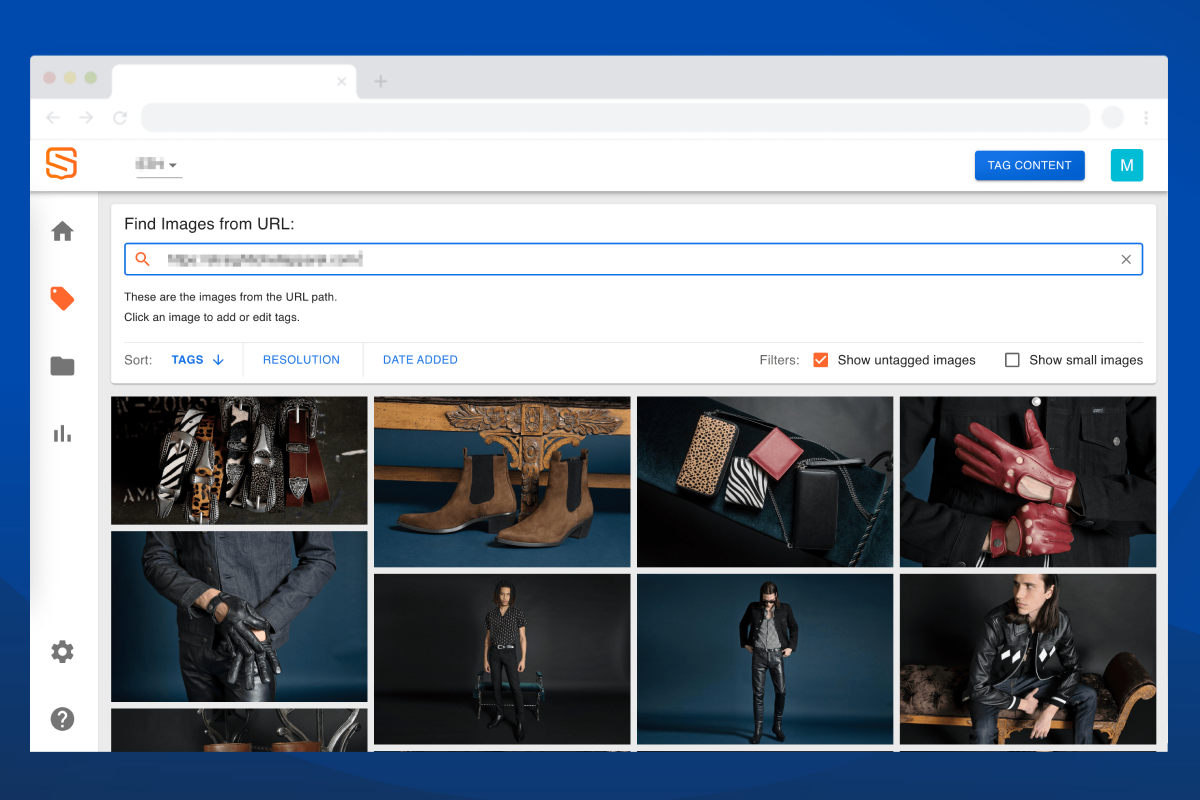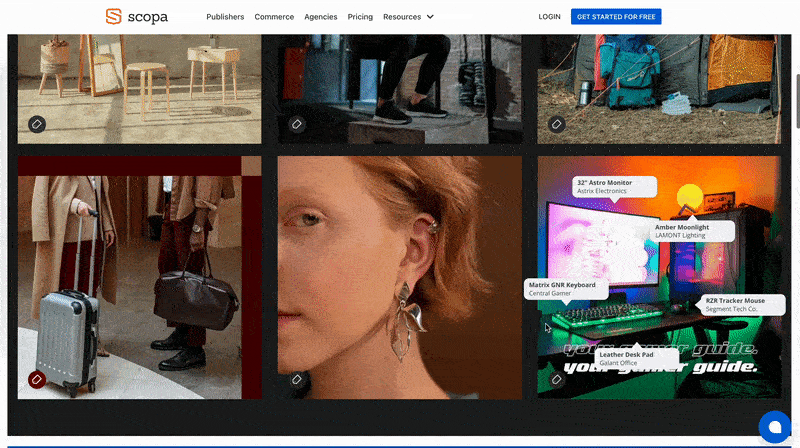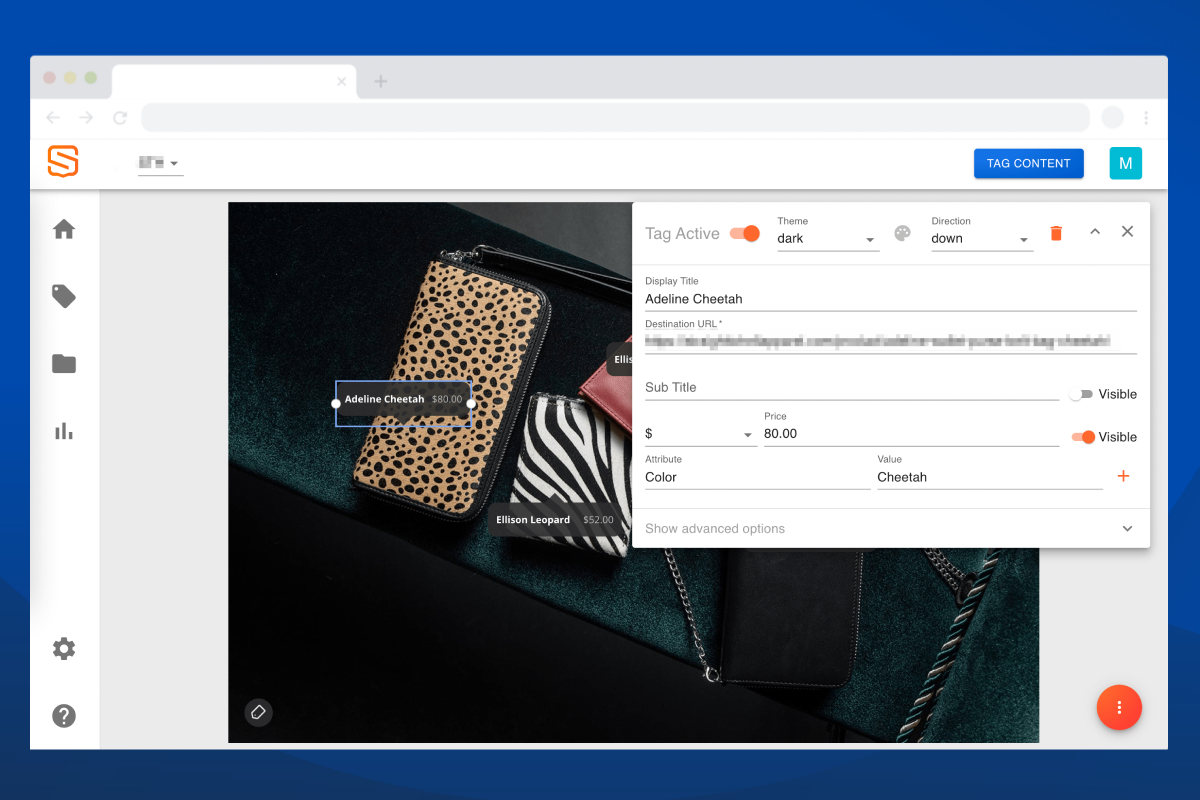
Add shoppable tags for multiple products on any website image
Overview
Scopa lets you add shoppable tags for multiple products on website images, helping drive traffic to product pages and boost conversions.
With Scopa’s no-code tagging platform, you can add tags to the images on your website to boost clicks and drive more sales.
All you need to do is copy-and-paste your site’s URL, and Scopa will round up all the web and mobile versions of your images at once.
From there, you can add multiple product links to each of your images and add info like the product name, destination URL, and price.

Scopa adds your site images onto the platform so you can start tagging right away.
The product tags feature a default tag design based on what converts on popular social media platforms—but you can customize tags too.
Adding your custom theme is easy. Just add your brand colors, create a tag style, and save everything under a new theme name.
With flexible customization at your fingertips, Shoppable tags will always look great on your website or on any of your clients’.

You can customize your tags with brand colors, new styles, and set as default themes.
With Scopa, you’re able to preview the tags on any image to see how they impact the user experience from the jump.
Once you’re done optimizing for different screen sizes, just hit publish and watch your tags go live across web and mobile.
Your tags will help customers find products instantly, increase conversions from your content, and integrate cross-selling into your ecommerce strategy.

Quickly preview an image to see how the tags display and interact with users in real time.
Best of all, you can add different attributes to your tags and track content-specific and product-specific performance.
Get the full overview on impressions, hovers, and clicks to figure out which products are fan-favorites for website visitors.
Scopa also integrates with Google Analytics or your preferred ecommerce platform, so you can streamline tagging and analyze all your data in one place.

Add different attributes for your tags to track analytics for specific content or products.
Shoppable tags are the future of shopping—just look at every ecommerce store on Instagram. (“Okay, I’m adding this entire outfit to my cart.”)
Thankfully, Scopa makes it a cinch to add multiple clickable tags to all your website images, so you can drive more users to specific product pages.
Drive high-intent traffic.
Get lifetime access to Scopa Shoppable Product Tagging today!
Deal terms & conditions
- Lifetime access to Scopa Shoppable Product Tagging
- All future Pro Plan updates
- No codes, no stacking—just choose the plan that’s right for you
- You must activate your license within 60 days of purchase
- Ability to upgrade or downgrade between 2 license tiers
- Only for new Scopa Shoppable Product Tagging users who do not have existing accounts
60 day money-back guarantee. Try it out for 2 months to make sure it’s right for you!
Features included in all plans
- Watermark-free shoppable product tags (remove “made with Scopa” watermark)
- Access to product feed integrations for uploads: Shopify, WooCommerce, WordPress, BigCommerce, Wix, and more
- Theme customization
- Automatic and customizable analytics tracking
- Access to product feed upload features and integrations
- Automatic onsite publishing
- User management controls
- Shoppable product tagging for websites
- Single or multiple links per image
- Enhanced analytics, automatic content engagement tracking, customized analytics for optimization
- Scale affiliate revenue: increase affiliate clicks, conversions, and revenue
- Increase product page traffic, contextual cross-selling, and average order value
- Create shoppable tags for clients’ CRO, SEO, and content marketing strategies
